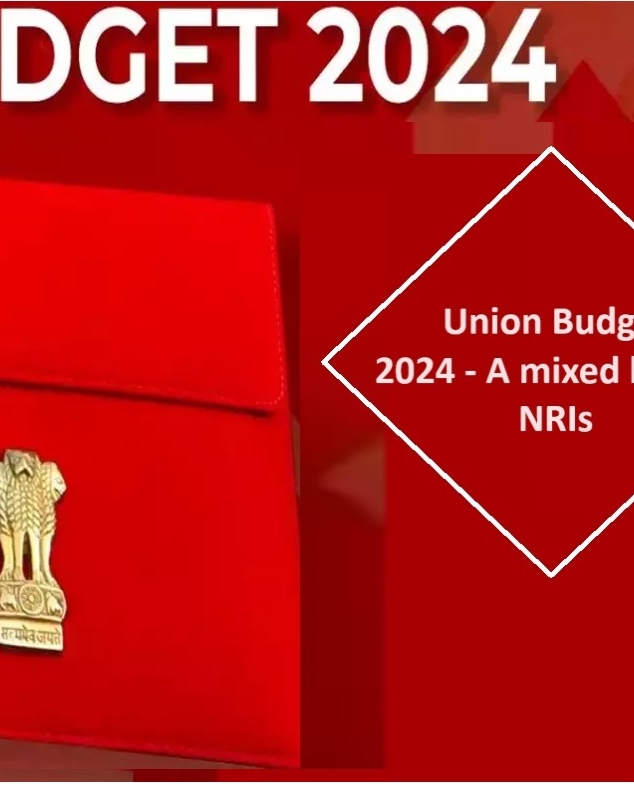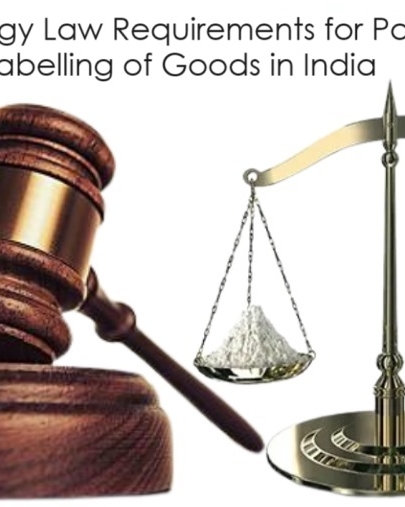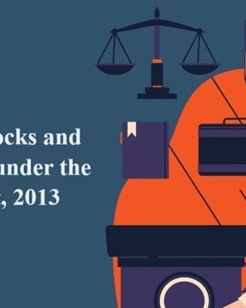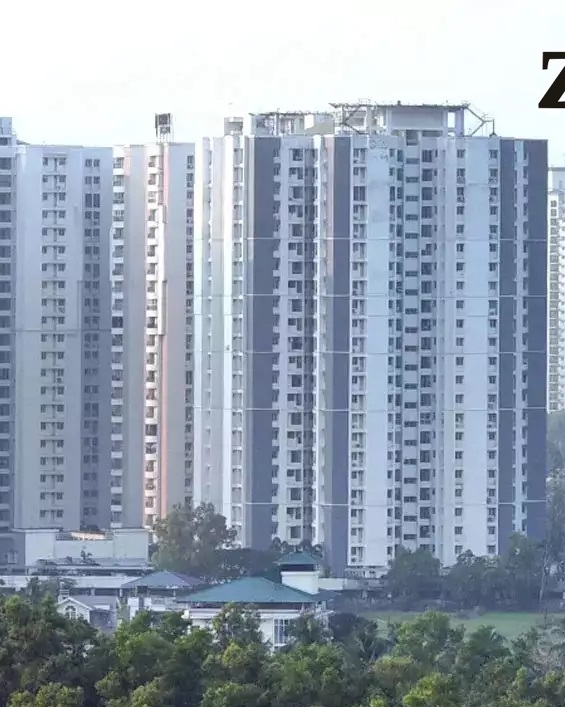Highlights:
Corporate Brief
- RBI notification on revised regulatory framework in relation to categorization of the Urban Co-operative Banks (or UCBs).
- RBI notification on Individual Housing Loans- Revised limits under four-tiered regulatory framework.
- RBI notification on revision of criteria for classification of UCBs as Financially Sound and Well Managed.
- RBI notification on operation of branches and subsidiaries of Indian banks and All India Financial Institution in IFSC and foreign jurisdictions.
- RBI Master Direction on Foreign Exchange Management (Hedging of Commodity Price Risk and Freight Risk in Overseas Markets) Directions, 2022.
- Reserve Bank of India (Financial Statements – Presentation and Disclosures) Directions, 2021 – Disclosure of material items.
- RBI notification on Central Payments Fraud Information Registry – Migration of Reporting to DAKSH.
- SEBI Master Circular for Foreign Portfolio Investors, Designated Depository Participants and Eligible Foreign Investors.
- SEBI circular on Framework for Orderly Winding down of Critical Operations and Services of a Clearing Corporation.
- SEBI circular on Foreign investment in Alternative Investment Funds (AIFs).
- SEBI circular on Listing obligations and disclosure requirements for Non-convertible Securities, Securitized Debt Instruments and/or Commercial Paper
- GST Wing circular on Prescribing manner of filing an application for refund by unregistered persons
RERA Brief
- Order issued by Chhattisgarh RERA for extending the registration for a period of more than 1 year.
- Order issued by Maharashtra RERA regarding commencement certificate and occupation/completion certificate for development of lands into plots (Plotted Development Projects)
- Order issued by Maharashtra RERA introducing guidelines regarding submission of a Self-Declaration for Disclosure of Interest in other Real Estate Organizations at the time of registration of a real estate project.
- Order issued by Maharashtra RERA for extending the validity of the project registration under Section-7(3) of the Real Estate ( Regulation and Development), Act, 2016
NCLT Brief
- M/S S.S. ENGINEERS VS HINDUSTAN PETROLEUM [CIVIL APPEAL NO. 4583 OF 2022]
Litigation Brief
- An Application under Section 8 of the Arbitration and Conciliation Act would not amount to invoking the Arbitration Clause
- No Appeal maintainable against the order of refusal of rejection of plaint in Application filed under Order VII Rule 11, CPC
Corporate Brief
Notification Number DOR.REG.No.84/07.01.000/ 2022-23 dated 01.12.2022 and DOR.CAP.REC.No.86/ 09.18.201/2022-23 dated 01.12.2022 of the Reserve Bank of India (RBI):
- Revision in the categorization UCBs for regulatory framework purposes
By virtue of the said notification, the RBI re-categorized the UCBs into four tiers as against the previous two-tier framework. The following are the categories:
| Tier | Categorization | Net-worth |
| Tier 1 | Irrespective of the deposit size, all the unit UCBs and salary earners’ UCBs; and other UCBs with deposits up to ₹100 crore; | Operating in single district – minimum of ₹2 crore |
| Others – minimum of ₹5 crore | ||
| Tier 2 | UCBs having deposits more than ₹100 crore but up to ₹1000 crore; | Minimum of ₹5 crore |
| Tier 3 | UCBs having deposits more than ₹1000 crore but up to ₹10,000 crore | Minimum of ₹5 crore |
| Tier 4 | UCBs having deposits more than ₹10,000 crore | Minimum of ₹5 crore |
It further mentions that in case of a UCB transiting to higher Tier, a glide path of up to 3 years may be provided to the same for compliance with higher regulatory framework of the higher Tier.
It is pertinent to mention here that the said RBI circular DOR.REG.No.84/07.01.000/2022-23 dated 01.12.2022 repealed the previous circular on classification of UCBs dated 07.03.2008 and Para 4 of circular on Annual Policy Statement dated 06.05.2009 containing the definition of Tier 1 and Tier 2 Banks.
Notification number DOR.CRE.REC.92/07.10.002/ 2022-23 dated 30.12.2022 of the Reserve Bank of India (RBI):
- Individual Housing Loans- Revised limits under four-tiered regulatory framework
The existing ceiling on housing loans to individuals were prescribed as ₹60 lakh in case of Tier 1 UCBs and ₹140 lakh in case of Tier 2 UCBs.
However, by virtue of revised categorization of the UCBs by RBI in December 2022, the revised limits on housing loans to an individual borrower, as sanctioned by UCBs are ₹60 lakh in case of Tier 1 UCBs, and ₹140 lakh in case of Tier 2-4 UCBs. However, the existing loans have been permitted to be run off till the maturity deadlines.
Notification Number DOR.REG.No.85/07.01.000/ 2022-23 dated 01.12.2022 of the Reserve Bank of India (RBI):
- Revision of criteria for classification of UCBs as Financially Sound and Well Managed (FSWM).
The UCBs may carry out a self-assessment test in deciding eligibility based on the following criteria:
- The CRAR is required to be at least 1 percentage point above the minimum CRAR applicable to a UCB as on the reference date;
- Net NPA of not more than 3%;
- Net profit for at least three out of the preceding four years subject to it not having incurred a net loss in the immediately preceding year;
- No default in the maintenance of CRR / SLR during the preceding financial year;
- Sound internal control system with at least two professional directors on the Board;
- Core Banking Solution (CBS) fully implemented; and
- No monetary penalty should have been imposed on the bank on account of violation of RBI directives / guidelines during the last two financial years.
Notification Number DOR.MRG.REC.87/00-00-020/2022-23 dated 01.12.2022 of the Reserve Bank of India (RBI):
- Operation of branches and subsidiaries of Indian banks and All India Financial Institution (AIFIs) in International Financial Service Centres (IFSCs) and foreign jurisdictions.
The said circular provides for a framework to allow the Indian banks and AIFIs to undertake activities that are not specifically permitted in the Indian domestic market and also specifies the applicability of the instructions to International Financial Services Centres in India including Gujarat International Finance Tec-City (GIFT City).
Under the said notification, RBI has allowed (i) the foreign branches/foreign subsidiaries of Indian banks/AIFIs, and (ii) branches/subsidiaries of Indian banks/AIFIs operating in IFSCs including those operating out of GIFT City to deal in the financial products including structured financial products which are not available or are not permitted by the RBI in the domestic market without prior approval of RBI, subject to compliance of the conditions stipulated in the said notification dated 01.01.2022.
The activities of branches/subsidiaries in foreign jurisdictions and IFSCs shall be subject to the laws in India , unless specifically exempted by law.
Master Direction Number A. P. (DIR Series) Circular No. 20 dated 12.12.2022 of the Reserve Bank of India (RBI):
- Master Direction on Foreign Exchange Management (Hedging of Commodity Price Risk and Freight Risk in Overseas Markets) Directions, 2022
By virtue of the said Master Direction, modalities have been laid down by RBI for all the Authorised Dealer Category-I Banks for facilitating hedging of commodity price risk and freight risk in overseas markets by its constituents or the customers.
The circulars that stand repealed on the date of enforcement of the said Master Direction are:
- P. (DIR Series) Circular No. 19 dated 12.03.2018 on Hedging of Commodity Price Risk and freight Risk in Overseas Markets.
- P. (DIR Series) Circular No. 16 dated 15.01.2020 on Hedging of Commodity Price Risk and freight Risk in Overseas Markets- Amendment.
Notification Number DOR.ACC.REC.No.91/21.04.018/ 2022-23 dated 13.12.2022 of the Reserve Bank of India (RBI):
- Reserve Bank of India (Financial Statements – Presentation and Disclosures) Directions, 2021 – Disclosure of material items
The said notification mandates all the commercial banks in respect of the following disclosure requirements for the year ending March 31, 2023 and onwards:
- In case any item under the subhead ‘Miscellaneous Income’ under the head ‘Schedule 14-Other Income’ exceeds 1% if the total income, particulars are required to be given in the notes to accounts. Similar instructions were provided for the subhead ‘Other Expenditure’ under the ‘Schedule-16 Operating Expenses’.
- Where an item under the ‘Schedule 5(IV)- Other Liabilities and Provisions-Others (including provisions’ or ‘Schedule 11(VI)-Other Assets-Others’ exceeds 1% of the total assets, particulars of all such items are required to be disclosed in notes to accounts.
- For Payments Banks, where an item under ‘Schedule 14(I)-Other income-Commission, Exchange and Brokerage’ exceeds 1% of the total income, particulars of all such items are required to be disclosed in notes to accounts.
Notification number CO.DPSS.OVRST.No.S1619/06-08-005/2022-2023 dated 26.12.2022 of the Reserve Bank of India (RBI):
- Central Payments Fraud Information Registry – Migration of Reporting to DAKSH
RBI had operationalised the Central Payments Fraud Information Registry (CPIFR) in March 2020 with reporting of payment frauds by scheduled commercial banks and non-bank Prepaid Payment Instrument (PRI) issuers, which was announced vide Monetary Policy Statement 2019-20 on 07.08.2019.
For streamlining reporting, enhancing efficiency and automating the payments fraud management process, RBI has announced vide the said notification the migration of fraud reporting module to DAKSH – Reserve Bank’s Advanced Supervisory Monitoring System, with effect from 01.01.2023.
Master Circular Number SEBI/HO/AFD-2/CIR/P/ 2022/175 dated 19.12.2022 of Securities and Exchange Board of India (SEBI):
- Master Circular for Foreign Portfolio Investors, Designated Depository Participants and Eligible Foreign Investors
The said master circular consolidates and supersedes all the Operational Guidelines, circulars previously issued for Foreign Portfolio Investors, Designated Depository Participants and Eligible Foreign Investors.
Circular: SEBI/HO/MRD/MRD-PoD-3/P/CIR/ 2022/173 dated 16.12.2022 of the Securities and Exchange Board of India (SEBI):
- Framework for Orderly Winding down of Critical Operations and Services of a Clearing Corporation
In order to enable the Clearing Corporations (CCs) to have a framework for orderly winding down of critical operations and services, Securities Contract (Regulation) (Stock Exchanges and Clearing Corporations) Regulations, 2018 have been amended vide Gazette Notification No. SEBI/LAD-NRO/GN/ 2022/104 dated 15.11.2022.
The said circular provides a policy framework for orderly winding down of their critical operations and services, and the CCs are required to include the provisions prescribed by the said Circular.
These provisions provide for, inter alia, identification of critical operations and services of CCs (or classified as critical CCs), identification of potential scenarios that prevent a CC from being able to provide its critical operations and services, the standard operating procedures with respect to the same.
Circular Number SEBI/HO/AFD-1/PoD/P/CIR/ 2022/171 dated 09.12.2022 of the Securities and Exchange Board of India (SEBI):
- Foreign investment in Alternative Investment Funds (AIFs)
This circular provides guidelines for the manager of an AIF on what he should ensure at the time of investors on-boarding and also states that if an investor does not meet the conditions mentioned in the circular then capital contribution from such investor should be paused until the investor meets all the conditions.
Operational Circular SEBI/HO/DDHS/DDHS_Div1/ P/CIR/2022/0000000103 dated 29.07.2022(updated as on 01.12.2022) of Securities and Exchange Board of India (SEBI):
- Listing obligations and disclosure requirements for Non-convertible Securities, Securitized Debt Instruments and/or Commercial Paper
Multiple circulars have been issued with respect to the SEBI (Listing and Disclosure Requirements) Regulations, 2015 prescribing the continuous disclosure requirements for issuers of listed Non-Convertible Securities, Securitized Debt Instruments And Commercial Paper.
For effective regulation of the corporate bond market, to enable the issuers and other market stakeholders to get access to all the applicable circulars at one place, the said Operational Circular consolidates all the relevant existing circulars, with consequent changes, the stipulations of which have been elaborately discussed, chapter wise thereto.
Circular No. 188/20/2022-GST dated 27.12.2022 of the GST Policy Wing, Central Board of Indirect Taxes and Customs, Department of Revenue, Ministry of Finance.
- Allowing GST refund in certain cases to unregistered persons
The said circular allows GST refund to unregistered persons in cases where:
- An agreement/contract with a builder for the supply of services of construction of flat/building etc. has been cancelled and the amount towards consideration has been paid along with applicable GST;
- Long-term insurance policies are required to be terminated prematurely, and premium for entire period of term of policy is paid upfront along with applicable GST.
RERA Brief
Order issued by Chhattisgarh RERA for extending the registration for a period of more than 1 year
In accordance with Section-6 of Real Estate (Regulation and Development) Act, 2016, read with Rule-7 of Chhattisgarh Real Estate (Regulation and Development) Rules, 2017, registration can be extended up to 1 year after paying 50% of the registration fee as extension fee.
However, vide Order No. 16/RERA/2022/1545 dated 03.12.2022, Chhattisgarh Real Estate Regulatory Authority (“Authority”) has decided the registration for such project can also be renewed for a period of more than one year after consent of two-third of the allottees of the Project.
The said order also stipulates the fee for extending the registration for more than 1 year but up to 2 years as 75% of the registration fee, and for extending the registration for a period of more than 2 years, same amount as registration fee has to be paid. The order further mentions that delay in submission of application for extension of registration by the promoter would lead to a certain amount of late fee which has to be paid by the promoter separately.
Order issued by Maharashtra RERA regarding Commencement Certificate and Occupation Certificate/ Completion Certificate for Plotted Development Projects
Vide Order No. 37/2022 dated 13.12.2022, Maharashtra Real Estate Regulatory Authority (“Authority”) issued a clarification with regard
to commencement and completion of plotted development projects. The order specifies that grant of non-agricultural permission along with sanad issued in the form in Schedule lV or Schedule V in accordance with Rule 4 and Rule 7 of the Maharashtra Land Revenue (Conversion of Use of Land and Non-Agricultural Assessment) Rules, 1969 (“the Rules”) by the concerned Competent Authority shall be considered as Commencement Certificate for plotted development projects. Further, the order states that the receipt of intimation of the Tahsildar given as an acknowledgement of having received the intimation of the date of commencement of non-agricultural use after completion and execution of all conditions as may have been imposed by the Competent Authority (Tahsildar) in compliance of Rule 11-A of the Rules along with Form IV signed by the project Architect shall denote Occupation Certificate/ Completion Certificate for plotted development projects.
Order issued by Maharashtra RERA introducing guidelines regarding submission of a Self-Declaration for Disclosure of Interest in other Real Estate Organizations at the time at the time of registration of a real estate project
Vide Order No. 39/2022 dated 27.12.2022, Maharashtra Real Estate Regulatory Authority (“Authority”) introduced guidelines for submission of a self-declaration for disclosure of Interest in other Real Estate Organizations at the time at the time of registration of a real estate project. The order stipulates that while applying for registration of a real estate project, promoters shall upload a Self-Declaration in the format annexed with the order, on the letter head of the promoter disclosing whether promoter, as an individual or as a proprietor or as a director/ designated partner/ partners of the promoter organization, has/ have any interests in other real estate organizations whose real estate project are registered with any Real Estate Regulatory Authority across the country along with the said organization’s performance/ status in completing such real estate projects.
Order issued by Maharashtra RERA for extending the validity of the project registration under Section 7(3) of the Real Estate (Regulation and Development) Act, 2016
Vide Order No. 40/2022 dated 27.12.2022, Maharashtra Real Estate Regulatory Authority (“Authority”) issued directions in the matter of extension of validity of project registration. The order, inter alia, states that the extension of validity of project registration would be granted under Section 7(3) of the Real Estate (Regulation and Development) Act, 2016, to the promoters complying with the directions issued under Order No. 7 of 2019 dated 08.02.2019 which dealt with the matter of further extension being granted to promoters only in the cases where the association of allottees resolve that the existing promoter be permitted to complete the project within a specific time period and on payment of the prescribed fee. If promoters are unable to comply with the aforesaid order, then, promoters shall submit the consents as obtained from the allottees irrespective of the number of such consents along with reasons why the required percentage of consents from allottees could not be obtained and why the application for extension should be considered without the required 51% consent. Moreover, promoters shall submit an explanatory note setting out the grounds and reasons for delay in completion of the real estate project as well as setting out the need for grant of extension along with documents supporting such grounds and reasons and the next steps proposed to be taken by the promoter to complete the project with the extended period sought.
The said order also specifies the procedure to be followed by the Developer for such extension.
NCLT Brief
M/S S.S. ENGINEERS VS HINDUSTAN PETROLEUM [CIVIL APPEAL NO. 4583 OF 2022]
Issue
Whether the National Company Law Tribunal (“NCLT”) has power to admit section 9 application of the Insolvency and Bankruptcy Code, 2016 (“Code”) when there is pre-existing dispute between the parties with regards to the claims?
Brief Facts of the case
In the present case, the initiation of Corporate Insolvency Resolution Process (“CIRP”) was requested before the NCLT Kolkata Bench by the operational creditor (“M/s S.S. Engineers”) by filing an application under section 9 of the Code against HPCL Biofuels Ltd. (“HBL”). The said Section 9 application was allowed by the NCLT vide order dated 12.02.2020. Thereafter, an appeal was filed by HBL before the National Company Law Appellate Tribunal (“NCLAT”) challenging the aforementioned order passed by the NCLT.
Observation
The Supreme Court relied on the judgments, namely, Mobilox innovations Private Limited vs. Kirusa Software Private Limited and K. Kirshan vs. M/s Vijay Nirman Company Private Limited and observed that When examining an application under Section 9 of the Code, the NCLT would have to examine (i) whether there was an operational debt exceeding Rupees 1,00,000/- (ii) whether the evidence furnished with the application showed that debt exceeding Rupees one lakh was due and payable and had not till then been paid, and (iii) whether there was the existence of any dispute between the parties or the record of the pendency of a suit or arbitration proceedings filed before the receipt of demand notice concerning such dispute.
If any one of the aforesaid conditions was not fulfilled, the application of the operational creditor would have to be rejected.
Findings of the Apex court
Thus the issue was whether NCLT could adjudicate the disputes between the parties and can determine if any amount was due from the M/s S.S. Engineers, appellant herein, to HBL or vice versa. Thus, the apex court sided with the order NCLAT, whereby the NCLAT allowed the Appeal filed by the director of HBL and stated that the NCLT made a grave error while passing the order wherein the CIRP Application was allowed.
Conclusion
The deep analysis of the order runs to the conclusion that the NCLT is not bound to admit the matter or initiate the CIRP while there is a pre-existing dispute between the parties over the matter for which the application for CIRP is being filed. There is an admitted difference between the CIRP initiated by a financial creditor and an operational creditor. So, when it comes to the application for CIRP filed by the operational creditor, it can only be filed when there is an undisputed debt incurred by the corporate debtor and acknowledged by both parties. All the conditions as observed in Mobilox innovations Private Limited (supra) and K. Kirshan (supra), must be satisfied for the initiation of CIRP. Therefore, Code does not countenance dishonesty or a deliberate failure for the repayment of dues of an operational creditor.
However, while addressing the remedy to the operational creditor, the Hon’ble Supreme Court observed that the party is at liberty to avail other such remedies available, including arbitration, to recover its dues from the opposite party as there is always a redressal for the damage done dishonestly.
Litigation Brief
An Application under Section 8 of the Arbitration and Conciliation Act would not amount to invoking the Arbitration Clause
In the matter of: Web Overseas Limited v. Universal Industrial Plants Manufacturing Company Private Limited [FAO (COMM.) 8 OF 2021] Decided by the Hon’ble High Court of Delhi on 28.11.2022
Main issue:
Whether the time consumed by the respondent in pursuing its application under Section 8 of the A&C Act is required to be excluded for computing the period of limitation by virtue of Section 14 of the Limitation Act.
- Whether the legal notices issued by the respondent can be construed as notices commencing arbitral proceedings in terms of Section 21 of the A&C Act.
Observations of the Hon’ble High Court of Delhi:
- The Hon’ble High Court of Delhi observed that the benefit of Section 14(1) of the Limitation Act is available to a plaintiff who is diligently pursuing his claim before a Court of first instance or of appeal or revision. And, the Court is unable to entertain the same on account of a defect of jurisdiction or other cause of a like nature. The said provision is obviously not available to a defendant who is resisting a claim. A counter-claim is like a suit and thus a defendant may be construed as a plaintiff in the context of a counter-claim. However, in order to claim the benefit of Section 14(1) of the Limitation Act, it is essential that the party claiming the benefit of Section 14(1) of the Limitation Act has been diligently pursuing its claim in the court. And, the proceeding cannot be entertained by that court for want of jurisdiction and/or for like reasons; and not for want of an effective claim. The subsequent action in the court of competent jurisdiction, must be in respect of the same matter in issue as in the civil proceedings that could not be entertained by a court for want of jurisdiction.
- The Hon’ble High Court in the aforementioned matter also observed that once it is found that pursuing an application under Section 8 of the A&C Act does not amount to pursuing civil proceedings involving the same matter in issue as an arbitral claim, the respondent would not be entitled to any benefit under Section 14(1) of the Limitation Act.
- The Hon’ble High Court of Delhi in the matter of Web Overseas Limited v. Universal Industrial Plants Manufacturing Company Private Limited [FAO (COMM.) 8 OF 2021] held that an Application under Section 8 of the Arbitration and Conciliation Act would not amount to invoking the arbitration clause or as a request for reference of the disputes to be referred to arbitration under Section 21 of the A&C Act. The Hon’ble High Court of Delhi observed:
“There is a material difference between reference of parties to arbitration and reference of disputes to arbitration. A request to refer the parties to arbitration in terms of Section 8 of the A&C Act, which is made to a judicial authority, cannot be construed as a request for the dispute to be referred to arbitration”.
No Appeal maintainable against the order of refusal of rejection of plaint in Application filed under Order VII Rule 11, CPC
IN THE MATTER OF: Bhushan Oil and Fats Pvt. Ltd. vs. Mother Dairy Fruit and Vegetables Pvt. Ltd., bearing FAO(OS)(COMM) no.3/2023, Neutral Citation No. 2023/DHC/000363 Decided by Hon’ble High Court of Delhi on 12.01.2023
Facts:
The Respondent, is the Plaintiff in the main suit, who has filed a suit for infringement of its trademark against the Appellant.
The Appellant, being the original defendant in the main suit, had filed an application under Order VII Rule 11 of the Code of Civil Procedure, 1908 (hereinafter referred to as “CPC”) read with Section(s) 28(3), 30(2)(e) and 134 of the Trade Marks Act, 1999, seeking dismissal of the suit instituted by the Respondent.
The Ld. Judge, before whom main suit and Application of Appellant were listed, dismissed the Application filed under Order VII Rule 11 of CPC by the Appellant as meritless. The Ld. Single Judge, after appreciating the position of law, observed that Section 28(3) of the Trade Marks Act, 1999, does not prohibit a suit for infringement if the mark of the Defendant is also registered. He further stated that Section 124 of the Trade Marks Act, 1999, expressly recognises and envisages filing of a suit alleging infringement against the Defendant even when the impugned trademark is registered.
Aggrieved by the order of Ld. Single Judge rejecting its Application for dismissal of suit, the Appellant filed an appeal before division bench of the Hon’ble High Court, seeking to impugn the order of the Ld. Single Judge. On the contrary, the Respondent (Plaintiff in the main suit) raised a preliminary objection with respect to the maintainability of the appeal in the present form.
Issues:
The issue which arose in the instant case is whether an appeal lies against the order of a Court refusing to reject the plaint or dismiss a suit in an application filed under Order VII Rule 11 of CPC.
Court’s Observations and Findings:
The Hon’ble High Court perused the provisions of Order XLIII Rule 1 of the CPC, providing for appeal from orders, to observe that only reference to Order VII of the CPC as envisaged in Order XLIII Rule 1 relates to Order VII Rule 10.
The Hon’ble Court further held that Order XLIII Rule 1 mentioning only about Order VII Rule 10, cannot come to any assistance of the Appellant challenging the order of refusal of the Application under Order VII rule 11 of the CPC by a Court since the scope and guiding factors of an application under Order VII rule 10 of the CPC are very different from that of an application under Order VII rule 11 of the CPC and they stand on a completely different footing.
It was further observed that it is an unwritten principle of law that all parties to a suit, including the parties before this Court, are bound by the Statute. Hence, there being no provision for such an appeal under the provisions of Order XLIII Rule 1 of CPC, the present appeal is not maintainable in the eyes of the law.
Affirming its stand, reliance was placed by the Hon’ble Court on the judgment of a Co-ordinate Bench in Odean Builders (P) Ltd vs. NBCC(India) Ltd., 2021 SCC OnLine Del 4390, wherein similar issue was raised and after dealing with a contrary view of a Co-ordinate Bench in D&H Inida Ltd. vs. Superon Schweisstechnik India Ltd., 2020 SCC OnLine Del 477 and re-affirming the settled position by the Hon’ble Supreme Court in Kandla Export Corporation & Anr. vs. OCI Corporation and Anr. (2018) 14 SCC 715, it was held that no appeal is maintainable against any order(s) which are not provided in the provision of Order XLIII of the CPC.
The Hon’ble Court, after noting the settled principles of law and the factual matrix of the case, neither proceeded with the merits of contentions raised by the Appellant nor gave any finding qua the legal aspects sought to be argued on behalf of the Appellant and dismissed the appeal in limine being not maintainable.
Disclaimer:
For private circulation to the addressee only and not for re-circulation. Any form of reproduction, dissemination, copying, disclosure, modification, distribution and/ or publication of this Newsletter is strictly prohibited. This Newsletter is not intended to be an advertisement or solicitation. The contents of this Newsletter are solely meant to inform and is not a substitute for legal advice. Legal advice should be obtained based on the specific circumstances of each case, before relying on the contents of this Newsletter or prior to taking any decision based on the information contained in this Newsletter. ZEUS Law disclaims all responsibility and accepts no liability for the consequences of any person acting, or refraining from acting, on such information. If you have received this Newsletter in error, please notify us immediately by telephone.
Copyright © 2014 ZEUS Law. All rights reserved. Replication or redistribution of content, including by caching, framing or similar means, is expressly prohibited without the prior written consent of ZEUS Law.




















